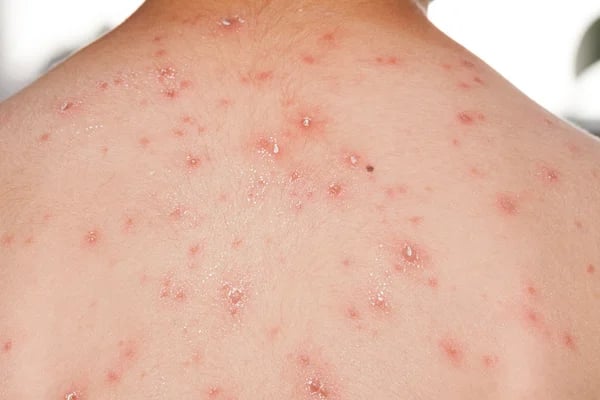Chickenpox: Causes, Symptoms, and Treatment
Discover everything about Chickenpox: its causes, symptoms, and treatment options. Stay informed to effectively manage and prevent this common illness. #chickenpox


Introduction
Chickenpox, also known as varicella, is a highly contagious viral infection caused by the varicella-zoster virus (VZV). It primarily affects children, but can also occur in adults who have not been previously infected or vaccinated. In this article, we will explore the causes, symptoms, and treatment options for chickenpox.
Causes
Chickenpox is primarily transmitted through direct contact with the fluid from the blisters of an infected person. It can also be spread through respiratory droplets when an infected individual coughs or sneezes. The virus can be easily transmitted in crowded places such as schools or daycare centers.
Symptoms
The symptoms of chickenpox usually appear within 10 to 21 days after exposure to the virus. The initial symptoms may include:
Fever
Headache
Loss of appetite
Fatigue
Within a day or two, a red rash will begin to appear, which then progresses to small, itchy blisters. These blisters can be found all over the body, including the face, scalp, and genital area. The blisters eventually scab over and form crusts, which then fall off after a week or two. New blisters may continue to appear over several days.
Treatment
There is no specific cure for chickenpox, but the infection usually resolves on its own within two to three weeks. Treatment mainly focuses on relieving the symptoms and preventing complications. Here are some measures that can be taken:
Using over-the-counter medications, such as acetaminophen, to reduce fever and alleviate discomfort.
Applying calamine lotion or using cool compresses to soothe the itching.
Keeping the affected person's nails short to prevent scratching and potential bacterial infections.
Ensuring adequate hydration by drinking plenty of fluids.
Isolating the infected individual to prevent the spread of the virus.
In severe cases, antiviral medications may be prescribed to high-risk individuals, such as pregnant women or those with weakened immune systems.
Prevention
The best way to prevent chickenpox is through vaccination. The varicella vaccine is highly effective in preventing the disease or reducing its severity if infection occurs. It is recommended for children and adults who have not been previously vaccinated or infected. Vaccination not only protects individuals from chickenpox but also helps in preventing the spread of the virus to others.
Conclusion
Chickenpox is a common childhood infection that can cause discomfort and complications if not managed properly. Recognizing the symptoms, seeking appropriate treatment, and following preventive measures can help in minimizing the impact of the disease. Vaccination remains the most effective way to prevent chickenpox and its potential complications.
